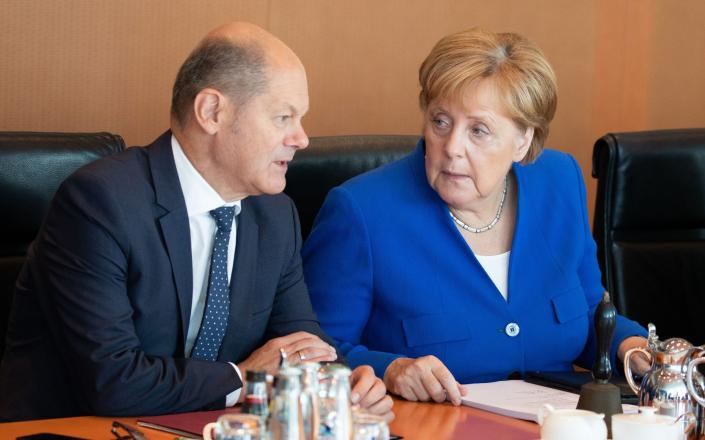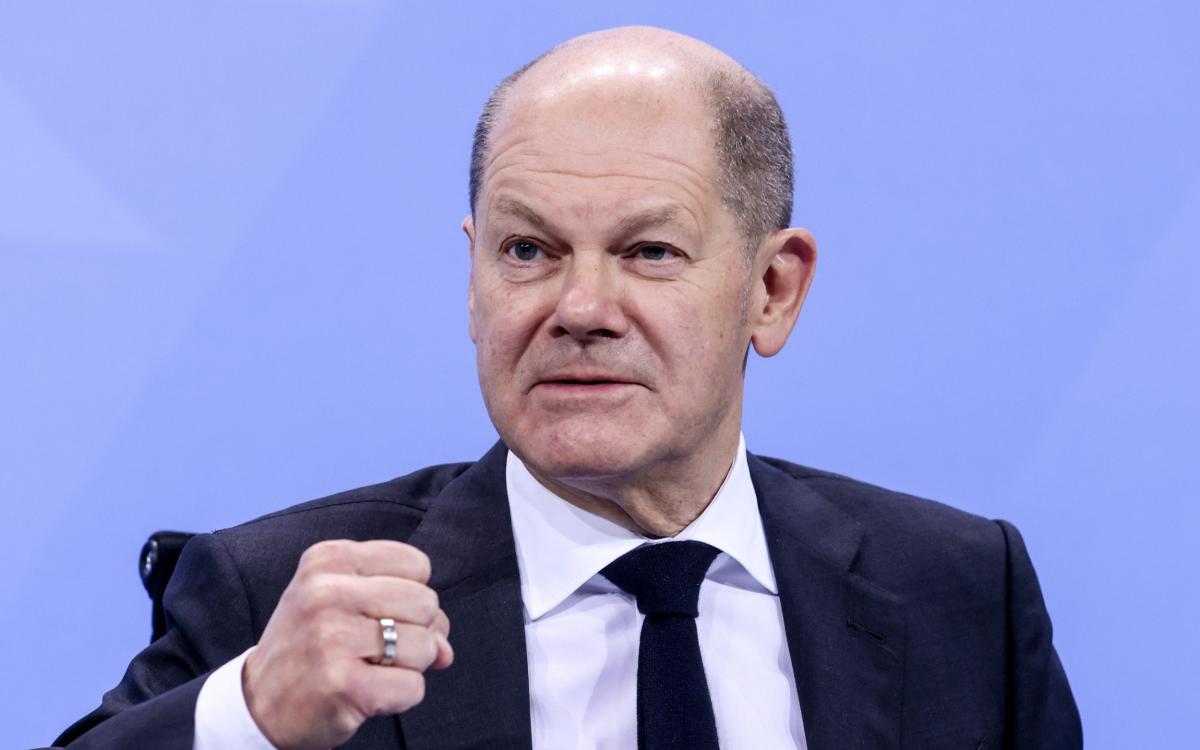Olaf Scholz became chancellor of Germany after pitching himself as Angela Merkel 2.0.
But Mr Scholz is transforming himself, about turn by about turn, from a mini-Merkel to an anti-Angela.
No one doubted that, if Ms Merkel had decided to prolong her 16-year career as Germany’s leader, she would have easily won the election in 2021.
Mr Scholz cast himself as her continuity candidate, posing as a clone of Merkellian reticence and competence. It didn’t matter that he was the leader of the centre-Left SPD, while Mrs Merkel headed the centre-Right CDU.
He had served as vice chancellor in Ms Merkel’s coalition government, which gave him a better claim on her 16-year legacy than the CDU’s doomed candidate Armin Laschet.
But once Mr Scholz was ensconced in the Chancellery in Berlin, events conspired to make things anything but business as usual.
Russia’s illegal invasion of Ukraine precipitated a thorough re-evaluation of Mrs Merkel’s legacy.

Her soft-touch approach with Putin and decision to back the Nord Stream 2 pipeline, deepening Germany’s addiction to Russian gas, were shown to be huge errors of judgement.
Mr Scholz ditched the Nord Stream 2 project and, after some delay, began sending weapons to Ukraine. He also reversed decades of German policy by pledging to rearm the military after years of neglect.
Now Mr Scholz has begun cracking down on illegal migration in a clear repudiation of what in Germany is seen as Ms Merkel’s greatest triumph or her most grievous sin.
In 2015, Mrs Merkel threw open Germany’s borders to more than a million migrants travelling across Europe. It was a sacrifice that arguably saved the EU from a crisis that threatened to overcome it. But critics say it brought nothing but more chaos and yet more illegal migrants to Europe.
Mr Scholz, the apprentice turned master, may be dismantling Mrs Merkel’s legacy.
Even with her credibility now shredded, Ms Merkel still towers over her successor, who has never had her authority in Europe or on the global stage. She is, after all, Germany’s longest-serving chancellor after Bismark and her mentor Helmut Kohl, who served 10 days more than she did.
Rather than her qualities, Mr Scholz has instead embraced her gnomic, excessive caution, which he combines with his own tendency to flip-flop.







